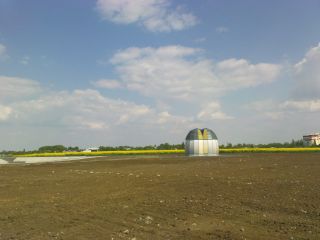Opera has published some stats on phone use with Opera Mini the first quarter this year (based on the URL this seems to be a front page rather than a quarter report 2008/I, so if you read this post later the content may no longer match). To what extent this can be generalised to phone browsing in general is less clear.
The first graph, cumulative users per month, isn’t very interesting unless you’re into marketing or wonder how well Opera Mini fares, even then it is less useful than the two other graphs for page views and data consumed that tells something about how much it is used as opposed to how often it is installed, and the use grows considerably faster than the number of installs. The consumption table is particularly freaky, what happened in December that almost doubled the traffic (and increased the number of pageview by almost a half)? In November Mini 4.0 was released. That the data consumption increased faster than the number of pages viewed would either mean that people were viewing more advanced (or bloated) pages than they did before, that the data compression is less efficient than 3.0, or both.
The bigger story is that five times as much traffic is handled this March than a year ago, and though the columns are too small to measure precisely that in turn was five times as much as March 2006. So will the current 1 terabyte of data every day turn into 5 terabytes by 2009? By the guesstimate that Opera Mini uses a quarter of Norway’s bandwidth, they should be using five quarters of the bandwidth by then…
(more…)
